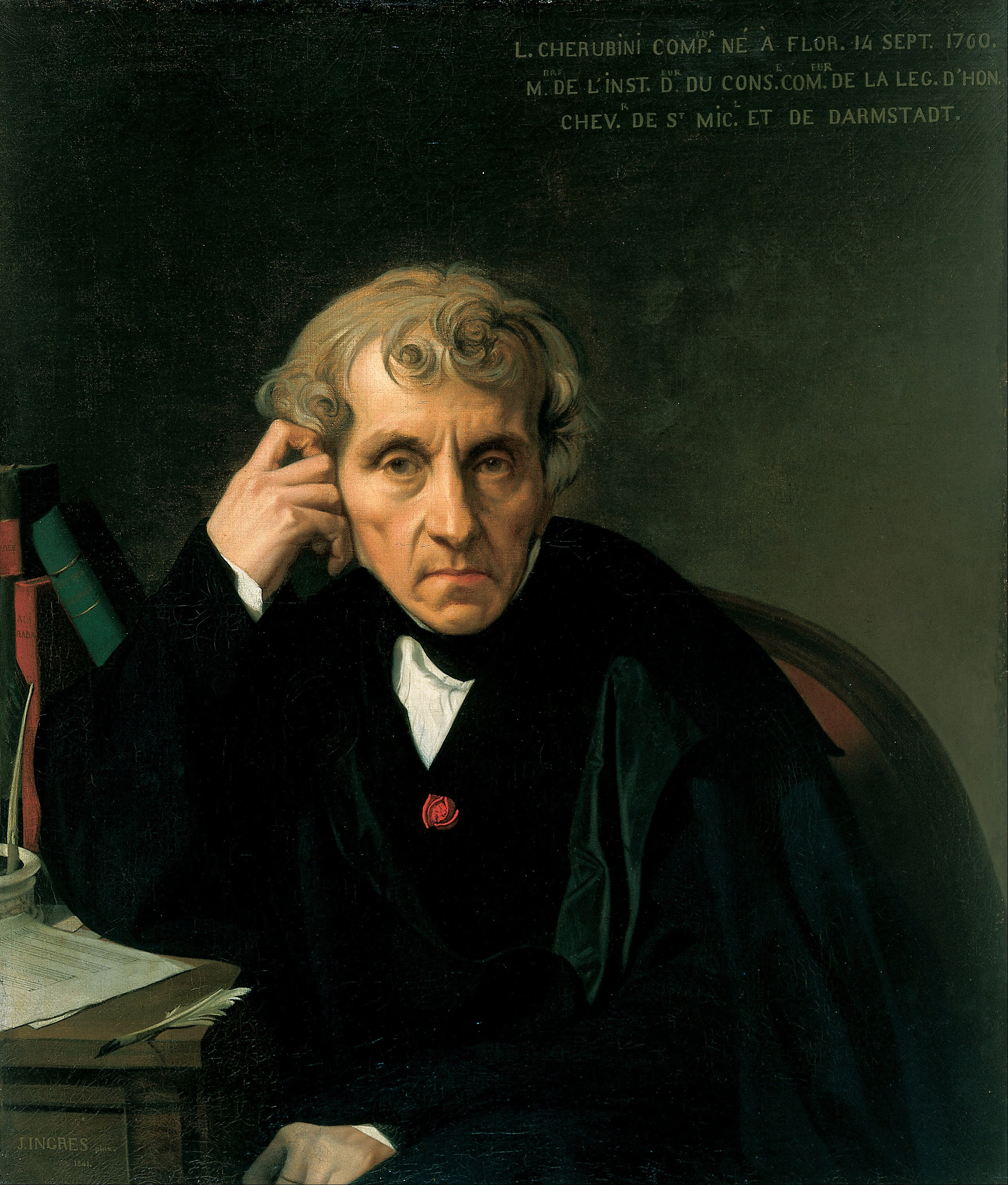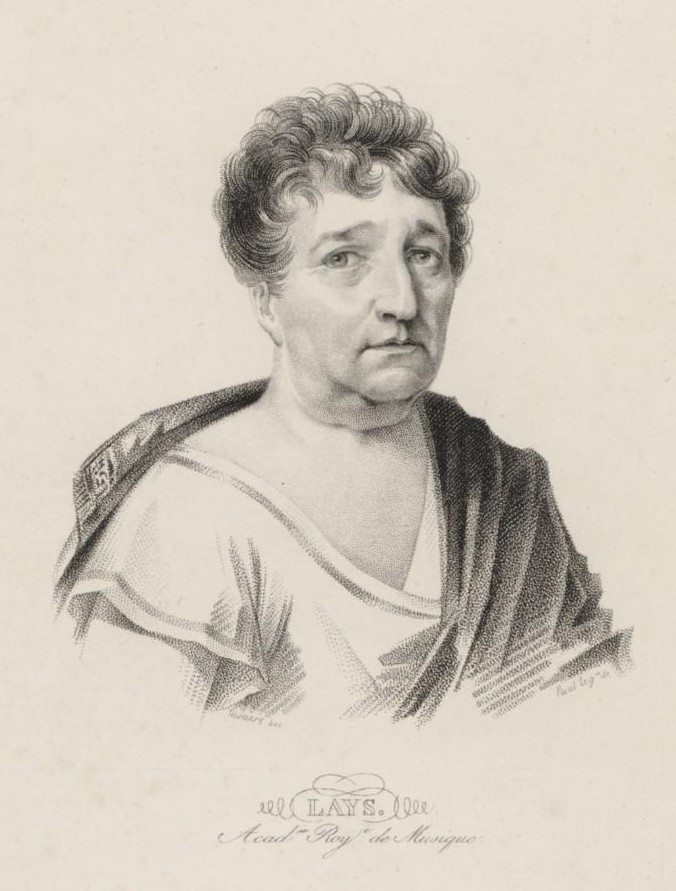|
Démophoon
''Démophoon'' (sometimes spelt ''Démophon'') is an opera by the composer Luigi Cherubini, first performed at the Académie Royale de Musique (the Paris Opera) on 2 December 1788. It takes the form of a ''tragédie lyrique'' in three acts. The libretto, by Jean-François Marmontel, is based on '' Demofoonte'' by Metastasio. Performance history and reception ''Démophoon'' was Cherubini's first French opera after his move from London to Paris. It was not a success and was soon eclipsed by Johann Christoph Vogel's opera on the same subject, which premiered the following year. The musicologist Basil Deane writes: "In retrospect it is easy to see that failure was inevitable. Marmontel based his French libretto on Metastasio, but sacrificed his predecessor's directness by introducing a superfluous sub-plot. Diffuse in structure, his text is pompously banal in language." The Italian Cherubini also had difficulty setting French and there are numerous examples of false accentuation. He ... [...More Info...] [...Related Items...] OR: [Wikipedia] [Google] [Baidu] |
François Lays
François Lay, better known under the stage name Lays (14 February 1758 – 30 March 1831), was a French baritone and tenor opera singer. Originally destined for a career in the church, Lays was recruited by the Paris Opéra in 1779. He soon became a leading member of the company, in spite of quarrels with the management. Lays enthusiastically welcomed the French Revolution and became involved in politics with the encouragement of his friend Bertrand Barère. Barère's downfall led to Lays being imprisoned briefly, but he soon won back the public and secured the patronage of Napoleon, at whose coronation and second wedding he sang. This association with the Emperor caused him trouble when the Bourbon monarchy was restored and Lays's final years were darkened by disputes over his pension, mounting debts, the death of his only son and his wife's illness. After a career spanning more than four decades, he died in poverty. Lays was famous for the beauty of his voice. One of the Op� ... [...More Info...] [...Related Items...] OR: [Wikipedia] [Google] [Baidu] |
Luigi Cherubini
Maria Luigi Carlo Zenobio Salvatore Cherubini ( ; ; 8 or 14 SeptemberWillis, in Sadie (Ed.), p. 833 1760 – 15 March 1842) was an Italian Classical and Romantic composer. His most significant compositions are operas and sacred music. Beethoven regarded Cherubini as the greatest living composer of his era. Cherubini's operas were heavily praised and interpreted by Rossini. Early years Cherubini was born Maria Luigi Carlo Zenobio Salvatore Cherubini in Florence in 1760. There is uncertainty about his exact date of birth. Although 14 September is sometimes stated, evidence from baptismal records and Cherubini himself suggests the 8th is correct. Perhaps the strongest evidence is his first name, Maria, which is traditional for a child born on 8 September, the feast-day of the Nativity of the Virgin. His instruction in music began at the age of six with his father, Bartolomeo, ''maestro al cembalo'' ("Master of the harpsichord", in other words, ensemble leader from the harpsichor ... [...More Info...] [...Related Items...] OR: [Wikipedia] [Google] [Baidu] |
Tragédie En Musique
''Tragédie en musique'' (, musical tragedy), also known as ''tragédie lyrique'' (, lyric tragedy), is a genre of French opera introduced by Jean-Baptiste Lully and used by his followers until the second half of the eighteenth century. Operas in this genre are usually based on stories from classical mythology or the Italian romantic epics of Tasso and Ariosto. The stories may not necessarily have a tragic ending – in fact, most do not – but the works' atmospheres are suffused throughout with an affect of nobility and stateliness. The standard ''tragédie en musique'' has five acts. Early works in the genre were preceded by an allegorical prologue and, during the lifetime of Louis XIV, these generally celebrated the king's noble qualities and his prowess in war. Each of the five acts usually follows a basic pattern, opening with an aria in which one of the main characters expresses their feelings, followed by dialogue in recitative interspersed with short arias (''petits a ... [...More Info...] [...Related Items...] OR: [Wikipedia] [Google] [Baidu] |
Jean-François Marmontel
Jean-François Marmontel (; 11 July 1723 – 31 December 1799) was a French historian, writer and a member of the Encyclopédistes movement. Biography He was born of poor parents at Bort, Limousin (today in Corrèze). After studying with the Jesuits at Mauriac, Cantal, he taught in their colleges at Clermont-Ferrand and Toulouse; and in 1745, acting on the advice of Voltaire, he set out for Paris to try for literary success. From 1748 to 1753 he wrote a succession of tragedies: ''Denys le Tyran'' (1748); ''Aristomene'' (1749); ''Cleopâtre'' (1750); ''Heraclides'' (1752); ''Egyptus'' (1753). These literary works, though only moderately successful on the stage, secured Marmontel's introduction into literary and fashionable circles. He wrote a series of articles for the '' Encyclopédie'' evincing considerable critical power and insight, which in their collected form, under the title ''Eléments de Littérature'', still rank among the French classics. He also wrote se ... [...More Info...] [...Related Items...] OR: [Wikipedia] [Google] [Baidu] |
Démophon
''Démophon'' is a French-language opera by the composer Johann Christoph Vogel, first performed at the Académie Royale de Musique (the Paris Opera The Paris Opera ( ) is the primary opera and ballet company of France. It was founded in 1669 by Louis XIV as the , and shortly thereafter was placed under the leadership of Jean-Baptiste Lully and officially renamed the , but continued to be kn ...) on 15 September 1789. The libretto is by Philippe Desriaux. The second and last of Vogel's operas to be staged, it was premiered after the composer's death at the age of 32 the previous year. Roles References ;Notes ;SourcesOriginal librettoanscoreat Gallica - Bibliothèque Nationale de France Operas French-language operas 1789 operas Operas by Johann Christoph Vogel {{french-opera-stub ... [...More Info...] [...Related Items...] OR: [Wikipedia] [Google] [Baidu] |
Antoinette Saint-Huberty
Anne-Antoinette-Cécile Clavel, better known by her stage name Madame Saint-Huberty or Saint-Huberti (15 December 1756 in Strasbourg – 22 July 1812 in Barnes, London), was a celebrated French operatic soprano whose career extended from until 1790. After her retirement from the stage and the publicising of her second marriage, she was also known as the Comtesse d'Antraigues from around 1797. She and her husband were murdered in England. Early life and musical career Antoinette Clavel (later known professionally as Madame Saint-Huberty) was the daughter of Jean-Pierre Clavel, a musician employed as a répétiteur in the private opera troupe of Charles IV Theodore, Elector Palatine. Her mother was Claude-Antoinette Pariset, the daughter of a grocer from Sélestat.Dorlan (1932), p. 25. Her biographers have often disagreed about her place of birth. Renwick, for example, found instances of it being indicated as Toul, Thionville, or Mannheim, and Clayton gives it as Toulouse – p ... [...More Info...] [...Related Items...] OR: [Wikipedia] [Google] [Baidu] |
Étienne Lainez
Étienne Lainez (or Lainé, Laînez) (23 May 1753 – 15 September 1822) was a French operatic tenor, and leading figure at the Paris Opera for over thirty years. In the course of his career there he created many tenor roles including Rodrigue in Sacchini's ''Chimène (opera), Chimène'', Énée in Piccinni's ''Didon (Piccinni), Didon'', Narcisse in Gluck's ''Echo et Narcisse'', and Licinius in Gaspare Spontini, Spontini's ''La vestale''. Lainez was born in 15th arrondissement of Paris, Vaugirard in Paris, and died in Paris as well. After his retirement from the stage, he taught lyric declamation at the Paris Conservatoire. References French operatic tenors 1753 births 1822 deaths 18th-century French male opera singers 19th-century French male opera singers Singers from Paris {{France-opera-singer-stub ... [...More Info...] [...Related Items...] OR: [Wikipedia] [Google] [Baidu] |
French-language Operas
French opera is both the art of opera in France and opera in the French language. It is one of Europe's most important operatic traditions, containing works by composers of the stature of Rameau, Berlioz, Gounod, Bizet, Massenet, Debussy, Ravel, Poulenc and Messiaen. Many foreign-born composers have played a part in the French tradition, including Lully, Gluck, Salieri, Cherubini, Spontini, Meyerbeer, Rossini, Donizetti, Verdi and Offenbach. French opera began at the court of Louis XIV with Jean-Baptiste Lully's (1673), although there had been various experiments with the form before that, most notably by Robert Cambert. Lully and his librettist Quinault created , a form in which dance music and choral writing were particularly prominent. Lully's most important successor was Rameau. After Rameau's death, Christoph Willibald Gluck was persuaded to produce six operas for the Paris Opera in the 1770s. They show the influence of Rameau, but simplified and with gre ... [...More Info...] [...Related Items...] OR: [Wikipedia] [Google] [Baidu] |
Operas By Luigi Cherubini
Opera is a form of Western theatre in which music is a fundamental component and dramatic roles are taken by singers. Such a "work" (the literal translation of the Italian word "opera") is typically a collaboration between a composer and a librettist and incorporates a number of the performing arts, such as acting, scenery, costume, and sometimes dance or ballet. The performance is typically given in an opera house, accompanied by an orchestra or smaller musical ensemble, which since the early 19th century has been led by a conductor. Although musical theatre is closely related to opera, the two are considered to be distinct from one another. Opera is a key part of Western classical music, and Italian tradition in particular. Originally understood as an entirely sung piece, in contrast to a play with songs, opera has come to include numerous genres, including some that include spoken dialogue such as ''Singspiel'' and ''Opéra comique''. In traditional number opera, singers e ... [...More Info...] [...Related Items...] OR: [Wikipedia] [Google] [Baidu] |
Operas
Opera is a form of Western theatre in which music is a fundamental component and dramatic roles are taken by singers. Such a "work" (the literal translation of the Italian word "opera") is typically a collaboration between a composer and a librettist and incorporates a number of the performing arts, such as acting, scenery, costume, and sometimes dance or ballet. The performance is typically given in an opera house, accompanied by an orchestra or smaller musical ensemble, which since the early 19th century has been led by a conductor. Although musical theatre is closely related to opera, the two are considered to be distinct from one another. Opera is a key part of Western classical music, and Italian tradition in particular. Originally understood as an entirely sung piece, in contrast to a play with songs, opera has come to include numerous genres, including some that include spoken dialogue such as ''Singspiel'' and ''Opéra comique''. In traditional number opera, si ... [...More Info...] [...Related Items...] OR: [Wikipedia] [Google] [Baidu] |
Apollo
Apollo is one of the Twelve Olympians, Olympian deities in Ancient Greek religion, ancient Greek and Ancient Roman religion, Roman religion and Greek mythology, Greek and Roman mythology. Apollo has been recognized as a god of archery, music and dance, truth and prophecy, healing and diseases, the Sun and light, poetry, and more. One of the most important and complex of the Greek gods, he is the son of Zeus and Leto, and the twin brother of Artemis, goddess of the hunt. He is considered to be the most beautiful god and is represented as the ideal of the ''kouros'' (ephebe, or a beardless, athletic youth). Apollo is known in Greek-influenced Etruscan mythology as ''Apulu''. As the patron deity of Delphi (''Apollo Pythios''), Apollo is an oracular god—the prophetic deity of the Pythia, Delphic Oracle and also the deity of ritual purification. His oracles were often consulted for guidance in various matters. He was in general seen as the god who affords help and wards off e ... [...More Info...] [...Related Items...] OR: [Wikipedia] [Google] [Baidu] |






